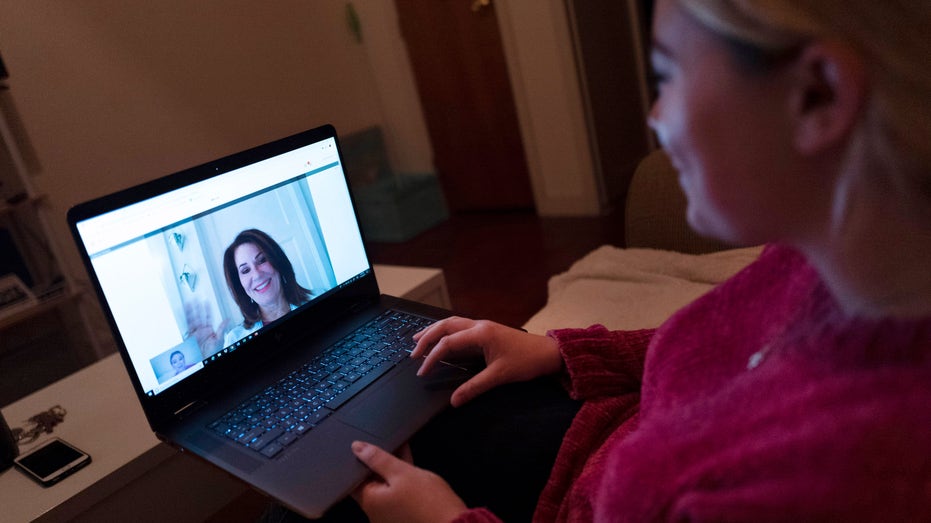Is telehealth reliable?
Telehealth has increased tenfold since the coronavirus pandemic swept the country
Telehealth is becoming an increasingly reliable form of health care as technology advances, though there are still instances of misdiagnoses.
The prevalence of telemedicine has been steadily growing since the early 2000s. More than three-fourths of U.S. hospitals and almost every Medicaid program had some form of telehealth by 2017, according to the American Health Association.
WHAT IS TELEHEALTH AND HOW WILL IT AFFECT YOU?
The practice has increased tenfold since the coronavirus pandemic swept through the U.S., medical news website Stat reported in March.

Google Meet telehealth call. (Google blog)
Patients have expressed high satisfaction with telehealth, especially in terms of convenience. The majority of patients who have used telehealth report shorter wait times, better access to care, cost savings, better clinical outcomes (less emergency room visits and ambulance rides) and even better patient-provider relationships, a 2020 Minnesota State University analysis shows.
The analysis noted that telehealth has proved especially convenient for people who live in rural areas and have less access to care as well as those who have fallen ill during the coronavirus pandemic but want to avoid visits to health clinics.
Despite the convenience of telehealth, the practice still has a long way to go to gain patient trust.
Misdiagnoses are more common with telehealth than in-person visits because it is more challenging for health care providers to accurately identify all diagnoses over the phone or computer without getting to closely examine patients. Quality of care can also differ from one provider to the next, according to the University of Illinois at Chicago.
One 2016 University of California study, for example, looked at 16 different telemedicine websites and found that some doctors misprescribed patients being treated for a skin disease and only exposed relevant risks of a prescription in 10 of 31 encounters.

A patient sits in the living room of her apartment in the Brooklyn borough of New York. (AP Photo/Mark Lennihan)
Telehealth providers will often suggest in-person visits for patients whom they cannot accurately diagnose.
GET FOX BUSINESS ON THE GO BY CLICKING HERE
Additionally, reliability depends on the type of illness or condition a telehealth patient is being treated for. Telehealth providers have doctors who specialize in areas ranging from infectious disease to dermatology to psychiatry and even neurology. In other words, one size does not fit all. Patients with different ailments will likely have different telehealth experiences and outcomes.
It is important for patients to research which telehealth services and apps are most fitting for their medical, financial and other needs or preferences.
CLICK HERE TO READ MORE ON FOX BUSINESS




















